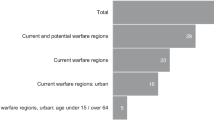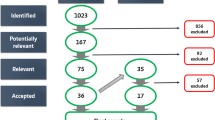Abstract
This paper attempts to understand how price volatility affects the political transition of a resource-rich nation. Two states reflect price volatility: ‘high prices’ and ‘low prices’. We argue that whether or not political transition (i.e., a switch from one regime to another) will take place in a particular state depends critically on the kind of goods a country produces. If the main economic activity in a country is the extraction of “point-source” resources such as oil that demands capital-intensive production, the opportunity cost of switching the existing regime does not alter if the price of the resource changes but the benefit becomes more lucrative. Therefore, the incumbent group is most vulnerable during ‘high prices’. If the main economic activity of the nations is the production of “diffused resources” such as coffee that requires labor, prices do affect the opportunity cost. Nations concentrating in these commodities face acute political crisis during downturns.




Similar content being viewed by others
Notes
We thank an anonymous reviewer for suggesting this argument.
This phenomenon of “petro-populism”, where the incumbent government relies on excessive use of natural resource revenues to buy political support, is used to describe the regime and policy of Venezuela’s Hugo Chávez ( sembrar el petróleo—to sow the oil), Iran’s Mahmoud Ahmadinejad election promise (“Put the oil money on everyone’s dinner table”) and the economic policy of Russia’s Vladimir Putin as a “Petro-Czar”. See Matsen et al. (2012) for further discussion.
Democracy is a compromise between the poor and the rich that can be attained without cost. The rich do not suffer from the asset redistributions caused by a revolution and the poor benefits from increased taxation on the rich without incurring the cost of revolution. Therefore, when there is a potential threat of revolution, this compromise is an option for the rich to alleviate the threat.
For a further description of the distinction between fully consolidated and semi-consolidated democracies, see Acemoglu and Robinson (2009, Ch. 7).
\(\widehat{\tau }^{r}\) is the tax rate that maximizes the payoff of the rich after the coup.
See Gause (2013) for a helpful discussion on the monarchial longevity of the Gulf Arab states in the wake of the Arab Spring revolt.
In fact, it is the high inequality in the Latin America that has helped the region to experience democracy in periods of high oil rents. As Latin American countries are far less dependent on natural resources compared with many states in the Middle East, the pressure on the rich for the redistribution of non-resource income may have tipped the balance in favor of the democratizing effect of natural resource rents. See Sinnott et al. (2010, p. 35–36) for further discussion.
Colombia and Costa Rica were democracies while the rest were autocracies. In Cameroon and Colombia, the prevalent governments were more prudent in public spending than those in Costa Rica and Cote d’Ivoire. In Kenya, the proceeds accrued mostly to private producers but the government revenue boomed as well and public consumption increased more than private consumption.
References
Acemoglu D, Robinson JA (2009) Economic origins of dictatorship and democracy. Cambridge University Press, New York
Akitoby B, Clements B, Gupta S, Inchauste G (2004) The cyclical and long-term behavior of government expenditures in developing countries. IMF Working Paper 04/202. International Monetary Fund, Washington, DC
Alesina A, Ozler S, Roubini N, Swagel P (1996) Political instability and economic growth. J Econ Growth 1:189–211
Alesina A, Tabellini G (2005) Why is fiscal policy often procyclical? NBER Working Paper 11600. National Bureau of Economic Research, Cambridge, Massachusetts
Arezki R, Ismail K (2012) Boom-bust cycle, asymmetrical fiscal response and the Dutch disease. J Dev Econ 101:256–267
Bazzi S, Blattman C (2011) Economic shocks and conflict: the (absence of?) evidence from commodity prices. CGD Working Paper 274. Center for Global Development, Washington, DC
Blattman C, Miguel E (2010) Civil war. J Econ Lit 48:3–57
Brückner M, Ciccone A (2011) Rain and the democratic window of opportunity. Econometrica 79:923–947
Chaudhry KA (1997) The price of wealth: economics and institutions in the Middle East. Cornell University Press, Ithaca
Cheibub JA, Przeworski A, Neto FPL, Alvarez MM (1996) What makes democracy endure? J Democr 7:39–55
Deaton A (1999) Commodity prices and growth in Africa. J Econ Perspect 13:23–40
Dube O, Vargas JF (2013) Commodity price shocks and civil conflict: evidence from Colombia. Rev Econ Stud 80:1384–1421
Dunning T (2009) Crude democracy: natural resource wealth and political regimes. Cambridge University Press, New York
Endegnanew Y (2012) The cyclicality of fiscal policy in good and bad times. Universitat Autonoma de Barcelona, Job market paper
Frankel J (2012) The natural resource curse: a survey of diagnoses and some prescriptions. In: Arezki R, Min Z (eds) Commodity price volatility and inclusive growth in low-income countries. International Monetary Fund, Washington, DC
Gasiorowski MJ (1995) Economic crises and political regime change: an event history analysis. Am Polit Sci Rev 89:882–897
Gavin M, Perotti R (1997) Fiscal policy in Latin America. In: Bernanke B, Rotemberg J (eds) NBER macroeconomics annual. MIT Press, Cambridge
Gause FG III (2013) Kings for all seasons: how the Middle East’s monarchies survived the Arab spring. Brookings Doha Center Analysis Paper No. 8. Doha, Qatar
Ghura D, Pattillo C et al (2012) Macroeconomic policy frameworks for resource-rich developing countries. International Monetary Fund, Washington, DC
Haggard S, Kaufman RR (1995) The political economy of democratic transitions. Princeton University Press, Princeton
Ilzetzki E, Végh C (2008) Procyclical fiscal policy in developing countries: truth or fiction. NBER Working Paper 14191. National Bureau of Economic Research, Cambridge, Massachusetts
Kaminsky G, Reinhart C, Végh C (2005) When it rains, it pours: procyclical capital flows and macroeconomic policies. NBER Macroecon Annu 19:11–82
Little IMD, Cooper RN, Corden M, Rajapatirana S (1993) Boom, crisis, and adjustment: the macroeconomic experience of developing countries. Oxford University Press for World Bank, Washington, DC
Matsen E, Natvik GJ, Torvik R (2012) Petro populism. Working Paper 06, Norges Bank
Riascos A, Végh C (2003) Procyclical fiscal policy in developing countries: the role of incomplete markets. University of California-Los Angeles and Banco de la República, Colombia, Mimeo
Ross ML (2001) Does oil hinder democracy? World Polit 53:325–361
Ross ML (2004) How do natural resources influence civil war? evidence from thirteen cases. Int Organ 58:35–67
Sinnott E, Nash J, de la Torre A (2010) Natural resources in Latin America and the Caribbean—beyond booms and busts?. The World Bank, Washington, DC
Talvi E, Végh CA (2005) Tax base variability and procyclical fiscal policy in developing countries. J Dev Econ 78:156–190
Tornell A, Lane P (1999) The voracity effect. Am Econ Rev 89:22–46
van der Ploeg F, Poelhekke S (2009) Volatility and the natural resource curse. Oxf Econ Pap 61:727–760
van der Ploeg F (2011) Natural resources: curse or blessing? J Econ Lit 49:366–420
Acknowledgments
We are grateful to two anonymous referees for their valuable suggestions. We thank Megan Foster for her help with proofreading. The views expressed here are authors’ own and do not necessarily reflect those of the affiliated institutions.
Author information
Authors and Affiliations
Corresponding author
Rights and permissions
About this article
Cite this article
Mahmud, A.S., Basher, S.A. Price volatility and the political economy of resource-rich nations. Econ Gov 15, 253–279 (2014). https://doi.org/10.1007/s10101-014-0144-7
Received:
Accepted:
Published:
Issue Date:
DOI: https://doi.org/10.1007/s10101-014-0144-7




